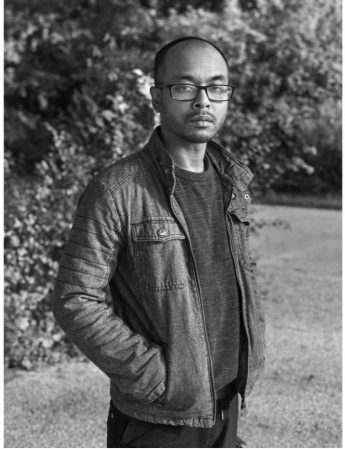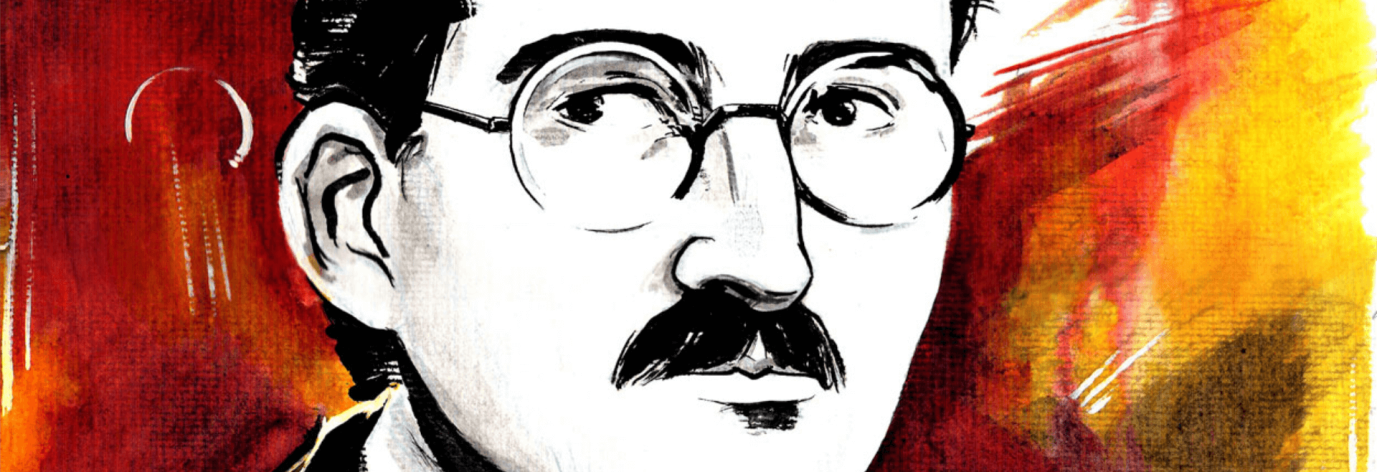In contemporary popular culture, apocalyptic and post-apocalyptic crises are often represented as allegories of our present. Contemporary dystopian movies belonging to the cyberpunk or dieselpunk genre such as the Mad Max franchiseare the most prominent examples of this; they often depict current crises of capitalism as persisting in a futuristic world. According to Mark Fisher, contemporary dystopian movies generally fail to imagine a future world in which capitalism no longer exists. In his book Capitalist Realism: Is There No Alternative? (2009), Fisher named such reification of capitalist reality in our imagination and cultural productions as ‘capitalist realism’. This is expressed precisely in the representation of crises, law, and subjectivity in the world of Mad Max. However, in the latest installment of the franchise, Mad Max: Fury Road (2015), spectral and dispossessed subjects also play pivotal roles in revealing and negating a spectral figure of law in a way that can also be read as attempts to circumvent the threshold of capitalist realism. In other words, these are attempts at imagining redemption in a world in which capitalist realism has become the norm in post-apocalyptic/dystopian representations.
Continue readingPsycho-Pass: A Case Study on The Representation Algorithmic-Juridical Machine
‘The state of exception is the device that must ultimately articulate and hold together the two aspects of the juridico-political machine by instituting a threshold of undecidability between anomie and nomos, between life and law, between auctoritas and potestas.’
- Giorgio Agamben, State of Exception
It has become a norm in contemporary popular culture to represent law and government as mechanism or apparatus for ubiquitous control; most often in the books, movies or tv series belonging to the cyberpunk genre. Contemporary theorists and authors who explore the relationship between governmentality and technology have revealed the fact that cultural objects of the cyberpunk genre generally represents a world that resembles our present world, and they often reveals the mechanisms of control that are employed in the creation of a docile working class (Chun, Control 183). In the age of algorithmic forms of regulations in which we live, such representations often engenders social critique, and reveal forms of ontological relations between human being and technological being. The combination of high-tech and low-life, which is a common feature of the futuristic societies in many cyberpunk and dystopian cultural objects, is precisely the reality in which majority of the current world population lives. In this article, however, I would bring into light an extreme example, the Japanese anime Psycho-pass. In this cyberpunk anime, machine is not simply a metaphor for the revealed hidden structure of the law, but law itself is reduced to machine. In this paper, I would like to delineate the points of intersection between algorithmic technology and law that the show illuminates. At the same time, my goal is to articulate how the main protagonist Tsunemori learns to deactivate and reduce the power of Sybil without completely destroying it.
Continue readingLocating the political of the post-corona, a moment of reflection.
The bio-political and the post-human turn have come to the forefront of discussion among global intellectuals since the beginning of the ongoing Corona Crisis. Supporters of both these trends argue that the concept of the political must be found beyond the category of the human political (bios) – in order to find any kind of resolution in the post-corona. This theoretical backdrop, and two photos of a recent Eid Prayer in Bangladesh may provide us with a site on which we can articulate an idea of the political that binds the Zoe (animal life) of human and the Geo (non-life) in an intimate relation. My main argument is that these images help us to articulate a zone of intimate connection in which the human zoe and the non-human geo find themselves in common solidarity in suffering the brunt of the anthropogenic climate change, and a moment of mutual reflection that depicts a post-human subjectivity.
Continue reading
ইবনে সিনা থেকে ওয়াল্টার বেনিয়ামিন, ওয়াক্ত থেকে নাউ-টাইম; ঐতিহাসিক বস্তুবাদীর মাহদীসুলভ তৎপরতা।
জার্মান দার্শনিক ও সমালোচক ওয়াল্টার বেনিয়ামিনের লেখা নিয়ে ব্যাখ্যা বিশ্লেষণের অভাব নাই। তার লেখা সরাসরি পাঠ করে বুঝতে পারাটা অনেকের জন্যেই সহজ কাজ না। আবার তার ব্যাখ্যাকারদের মধ্যেও তাকে নিয়ে অনেক বিভ্রান্তি ও মতভেদ দেখা যায়। বেনিয়ামিনের তফসির লেখকদের মধ্যে বহুত তর্ক ও ভিন্নমত থাকা সত্ত্বেও এইসব তফসিরের গুরুত্ব অনেক। কারন তফসির ছাড়া পাঠকদের পক্ষে বেনিয়ামিনের লেখায় দাঁত বসানো কঠিন। বেনিয়ামিনের বিখ্যাত ‘ইতিহাসের ধারণা প্রসঙ্গে’ নামক লেখায় হাজির থাকা নাউ-টাইম (Jetztzeit) ধারণাটির ক্ষেত্রেও একি কথা বলা যায়। আমার বেনিয়ামিন পাঠ অনেকটাই আগামবেনের ব্যাখ্যা বিশ্লেষণ প্রভাবিত। কিন্তু নাউ-টাইম বিষয়ে তার বিচার আমার কাছে অসম্পূর্ণ মনে হয়। সেই সাথে আগামবেনের এই ব্যাখ্যা ক্যাথলিক ধর্মতত্ত্ব প্রভাবিত হওয়ার কারনে বেনিয়ামিনের মূল বক্তব্য সম্বন্ধে বিভ্রান্তি বেড়েছে বলে মনে করি, কমে নাই।
The Wall and Beyond; A Paradigm of Endless Crisis
My object of analysis is the ongoing epic fantasy novel series A Song of Ice and Fire by the novelist and screenwriter George R. R. Martin, and its HBO dramatization The Game of Thrones. I argue that the apocalyptic storyline set in the novels and the TV series embodies a paradigm of Crisis which is generated and perceived in the contemporary western world, in mass media and political discourses. This crisis is externalized as something that originates beyond the border of the civilized western world. According to Giorgio Agamben, this form of crisis refers to an ‘enduring state’ divorced from any ‘final judgement’ or revolutionary possibilities.[1]
Stopping the wheel; a Marxist analysis of ‘The Game of Thrones’
The world of Ice and Fire is a transmedia story-world borne out of the ongoing epic fantasy novel series A Song of Ice and Fire by the novelist and screenwriter George R. R. Martin, which was popularized by the TV dramatization Game of Thrones, and expanded by the TV producers and fans through the use of various online platform in the form of official lore’s and fan theories. However, I will limit my analysis mostly to the TV series, as it is the most completed and consumed version of the product so far. My form of criticism will be a Marxist one, and I will analyze the story-world and the ideologies of certain characters in the context of contemporary global crisis as it is perceived and generated in the west. I will argue that the reigning ideology of the world of The Game Thrones mostly subscribes to the cultural logic of the neo liberal world order and the apocalyptic crisis this world faces embodies the contemporary crisis of this world order. At the same time I will try to interpret some protagonists from the story who are trying to fight this crisis as some of the forms and limitations of contemporary politics.
When Death Squad speaks the language of biopower
My objects of analysis are two video advertisement produced and distributed by RAB (Rapid Action Battalion), a military grade police unit of Bangladesh government that draws its members from almost every policing and military forces available to the government. I argue that these videos represent biopower and sovereign power as complimentary form of powers rather than them having a paradoxical and uneasy relationship. At the same time, I intend to analyze how these videos reproduce the ideology necessary for the reproduction of various forms of subjectivity such as norm abiding healthy individuals, labors and citizens as part of a population whose lives are exposed to death by a mechanism akin to State Racism. My central goal here is to present a case study of the phenomena of modern state powers using advanced Communication ISA (Social media, television etc.) to simultaneously produce forms of norms abiding subjectivity and forms of lives that can be killed. I also argue that the analysis of the RAB’s use of communication ideological state apparatus reveals to us the paradoxical yet material limitation of bio-power in a comprehensive way.
How will you stand with Bangladesh?
It is difficult not to be shocked by the photos of the terrorists that participated in the recent Dhaka attack; they are grinning from ear to ear with automatic rifles in their hands as the black flag of IS can be seen in the background. Photos of five young homegrown Bangladeshi IS fighters responsible for the recent Dhaka attack was published by the Site Intelligence group and since then have taken their place in the global media. Shock, disbelief or disgust, whatever you feel doesn’t matter to them as they are dead now, nor did it matter when they were alive and were posing during their photo sessions. For them and their ideological comrades, these images represents nothing but sheer courage and heroism, and their utter lack of concern for life in this world. No matter what kind of emotion they invoke in your heart, these photos will only further encourage potential jihadists.
The Bangladesh Government is claiming success in their dealing with the hostage crisis, but it was surely a success for the terrorists themselves as not only did they manage to kill most of the foreign hostages who were their prime target (‘crusaders’ in their jihadi term) but they also generated plenty of media attention. It was not only a shortcut to paradise that they longed for; they also desired wide media coverage. Like the Charlie Hebdo attackers, whom Slavoj Zizek described as ‘the worst’ full of passionate intensity by quoting from William Butler Yeats,those who attacked the Holey Restaurant in Gulshan were radicals engaged in ‘active nihilism’. They were ready to risk their own mundane lives, willing to go out laughing, or at least that is what they seem to have wanted us to see. And that was the purpose of their photo shoot. Continue reading
Ibn Rushd (Averroes); From Islamic golden age to the Enlightenment
The period from 8th century till the early 13th century is called the ‘Islamic Golden Age’ . It’s a period when many important philosophers and scientists emerged in the Muslim world. They translated, elaborated and expanded on ancient Greek and Indian science and philosophy. Ibn Sina, Al Farabi, Al Razi, Ibn Tufail and Ibn Rushd are some among them. Many of their books were translated in several European languages and had been in circulation in Europe till the enlightenment. Some of their works were highly influential in Europe and influenced many European thinkers from Renaissance to the enlightenment. Ibn Rushd’s commentaries on Aristotle, Ibn Tufail’s‘ Philosophus Autodidactus’andIbn Sina’s‘The Canon of Medicine’ are some among those works. Continue reading
Historical perspectives in confronting polarization
According to the existing International human rights laws and points of view, every human being has equal and inherently natural human rights. But modern concepts of human rights did not come in to existence suddenly, rather they were developed through historical experiences of people living in different parts of the world for thousands of years; to be more precise, they were developed mostly from the historical experiences of Europe. Human beings from Bangladesh or many other countries did not go through the same historical experiences and developments of Europe. It took hundreds of years for Europe to develop these concepts and to have a society that honors and guards them. Experiences of religious wars and inquisitions, deaths and suffering of millions have given birth to these ideas of inherent human rights in Europe. These concepts were solidified through grass root mass movements like French revolution. In Europe, the idea of human rights developed from the bottom. On the contrary, In a country like Bangladesh, it has been a development from the top, motivated by lessons learned through colonial and post-colonial experiences and not well entrenched in the society. Even today, most people in Bangladesh do not have any idea about many of these basic human rights. Many do not care about or understand the importance of fundamental rights such as free speech while they struggle every day for their right to live or their right for livelihood or education. Many of you will agree that categorization of human rights is not an easy task, and what I learned from my experiences is that all human rights are at the end of the day political rights. People need to politically fight for their rights. Continue reading










